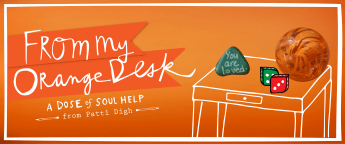There is a particular smell that arrives just before rain touches the ground. It is a scent both ancient and new, earthy and electric. Petrichor. The word itself feels like a secret, something one might whisper to the trees. Coined in the 1960s by Australian scientists, it describes the distinct fragrance released when rain falls on dry soil. But long before it had a name, it had a feeling of memory, of relief, of something in us loosening.
To notice petrichor is to notice that the world is speaking in scents, in shifts of light, in the subtle twitch of leaves before a storm. We are so often head-down, screen-bound, lost in thought or schedule. But the natural world continues its quiet choreography whether we’re watching or not. It hums and breathes and changes shape. And when we finally look up, it rewards us with reminders of our belonging.
Petrichor is not just about rain; it’s about readiness. The dry earth waits. The plants hold their breath. The sky turns a color we have no name for, some hue between pewter and longing. And then the clouds let go. The air grows damp and full of stories. And we remember, if only for a moment, that we are part of this cycle too. That we, like the thirsty soil, are waiting to be touched.
There is a spiritual attentiveness in noticing such things. The unfurling of a fern. The way a spider web catches the morning sun like lace. The sound of wind through pine. The tracks of deer in soft mud. These are the world’s small declarations, evidence that something more-than-human is at work and always has been.
Noticing the natural world is not about grand adventures into wilderness. It is about the nearby, the overlooked: moss on sidewalk cracks, the swoop of a swallow, the smell of honeysuckle thick in the air. It is about putting your phone down long enough to feel the breeze shift, or to see the sky’s bruised beauty before dusk. It is about walking slower, looking closer.
Step outside on a summer morning and breathe in. The air is ripe with green—sun-warmed grass, sap leaking from the joints of trees, the sugary musk of blooming magnolia. A neighbor’s garden offers its own perfume: tomatoes still clinging to their vines, mint crushed underfoot, basil sending up its sharp, clean warning. There is nothing passive about these smells—they are declarations. They say, I am here. They say, Pay attention.
Inside, scents change their register. Cinnamon and clove simmer on the stove. Old books hold the faint smell of dust and time. A worn cotton shirt smells like sleep, or safety. Someone you love leaves behind a trace on the pillow. It is my mother smelling my father’s clothes that came home from the hospital that last time—the time he didn’t come home. There is nothing abstract about these things. They are deeply, bodily true. And live in the world of ephemera.
Some smells carry ache: hospital antiseptic, plastic Halloween masks, gasoline on your grandfather’s hands. Others arrive as balm: lemon zest, fresh bread, lilac in the air before you can even see the blooms. We live in a world constantly exhaling, inviting us to notice.
Petrichor itself teaches us that the world speaks in thresholds. Just before rain, just after bloom, just as the geese rise from the pond in a synchronized lift. These in-between moments are where wonder lives. Where we realize the earth is not still but pulsing, and we are not apart from it, but within it.
To notice the natural world is to return to our senses, to inhabit our bodies, to remember that we are not just thinking machines but feeling animals. It is to taste the sweetness of a blackberry warmed by sun. To hear the hush after snow. To smell the storm before it comes.
Scents teach us to be present. They can’t be captured on camera or sent in a text. They resist technology’s grasp. They demand your nose, your body, your nearness. A world of scents is a world that asks you to slow down.
Petrichor is the smell of welcome. Of reunion. Of earth saying, “You’re home. Pay attention.” And when we do, when we truly look and listen, we find that the natural world is not something out there, but a kind of kinship. We belong to it. And it, somehow, belongs to us.
Love,
Patti






Lovely. We had lovely family members visit us this week, for the first time. We had planned to go to the local art museum on Tuesday, but when we found it closed for the day, we spent about 3 hours weeding one of the garden beds with me (I am far behind, due to a shoulder injury). Petrichor was a word of the day.
Dogs do this so well, don't they? This was beautiful Patti. <3